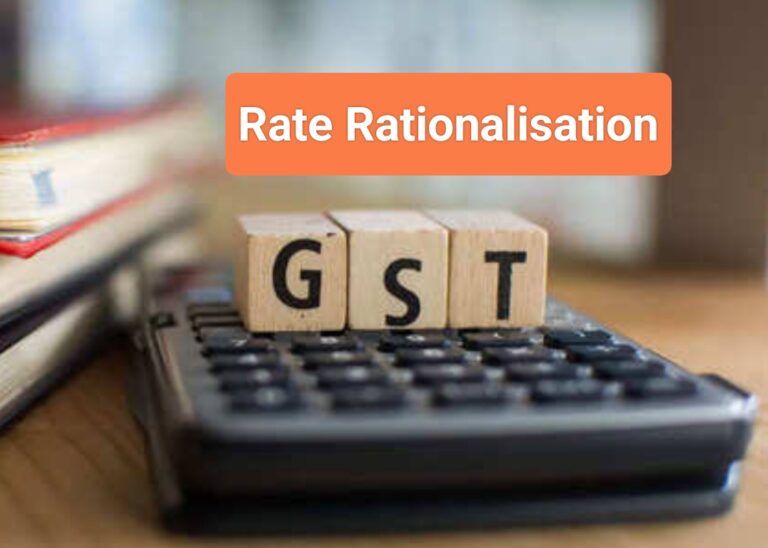The Council, in its 54th meeting scheduled for September 9, will discuss the GoM’s findings and the next steps in GST slab/rate rationalization efforts.
GST Slab & Rate Change: The Group of Ministers (GoM) meeting on Goods and Services Tax (GST) rate rationalization, held in New Delhi on August 22, concluded with a consensus that the existing GST slabs will remain unchanged for the time being. The GoM, responsible for reviewing the current GST structure, examined several proposals regarding possible rate changes across sectors like insurance, restaurants, beverages, and online gaming.
Karnataka’s Revenue Minister, Krishna Byre Gowda, expressed the GoM’s viewpoint, stating, “Why disturb the current structure? What do you achieve by disturbing it? We decided to discuss reducing slabs in our next meeting.” His comments were mirrored by West Bengal Finance Minister Chandrima Bhattacharya, who said, “No one favours changing any slabs right now. The rates and slabs will continue as they are, as discussed today.”
Also Read: IT-Delhi Faces ₹120 Crore GST Demand on Research Funds: A Setback for Indian Education
Bhattacharya also emphasized her request for a reduction in GST on life and health insurance. The proposal is currently under review by the GST fitment committee, and further data has been requested on this matter. While sector-specific tax relief, particularly in the insurance industry, remains under discussion, no immediate alterations to GST slabs or rates are expected.
Gowda noted that the GoM is gathering more information regarding the potential relaxation of GST rates in the insurance sector. Bihar Deputy Chief Minister Samrat Chaudhary confirmed that additional follow-up meetings would be held to consider these proposals in greater detail. However, no final decisions on changing GST rates or slabs have been made so far.
Also Read: Calcutta High Court Allows the Appeal Despite 66 Days Delay Because of Lack of Knowledge
This recent GoM meeting precedes the upcoming GST Council meeting on September 9. The GoM comprises ministers from seven states, with Samrat Chaudhary serving as convenor. Other members include West Bengal Finance Minister Chandrima Bhattacharya, Karnataka Revenue Minister Krishna Byre Gowda, Kerala Finance Minister K N Balagopal, Uttar Pradesh Finance Minister Suresh Kumar Khanna, Goa Transport Minister Mauvin Godinho, and Rajasthan Health Minister Gajendra Singh.
In a previous meeting held in June, the GST Council tasked the GoM with providing an overview of rate rationalization efforts. The Council, in its 54th meeting scheduled for September 9, will discuss the GoM’s findings and the next steps in rate rationalization efforts.
Currently, the GST system has five primary tax slabs: 0%, 5%, 12%, 18%, and 28%. Luxury and demerit goods also incur an additional cess on top of the highest 28% slab.
Also Read: 54th GST Council Meeting Likely on September 9: Key Issues and Agenda
Recently, there has been a growing demand for reducing the 18% GST rate on premiums for life and health insurance policies. Even Road and Transport Minister Nitin Gadkari advocated for the removal of GST on these insurance premiums in a letter to Finance Minister Nirmala Sitharaman.
During a Parliament session, Sitharaman acknowledged these demands but highlighted that state tax laws have been replicated under GST. She encouraged those seeking changes to engage with their respective state finance ministers before further pressing for adjustments at the national level.
As discussions continue, no immediate changes to GST rates or slabs are expected, but the GST Council meeting in September may provide additional clarity on the future of rate rationalization in India.
Read More
CBIC Issues Guidelines for Streamlining GST Audits and Bringing Uniformity in Tax Assessments
